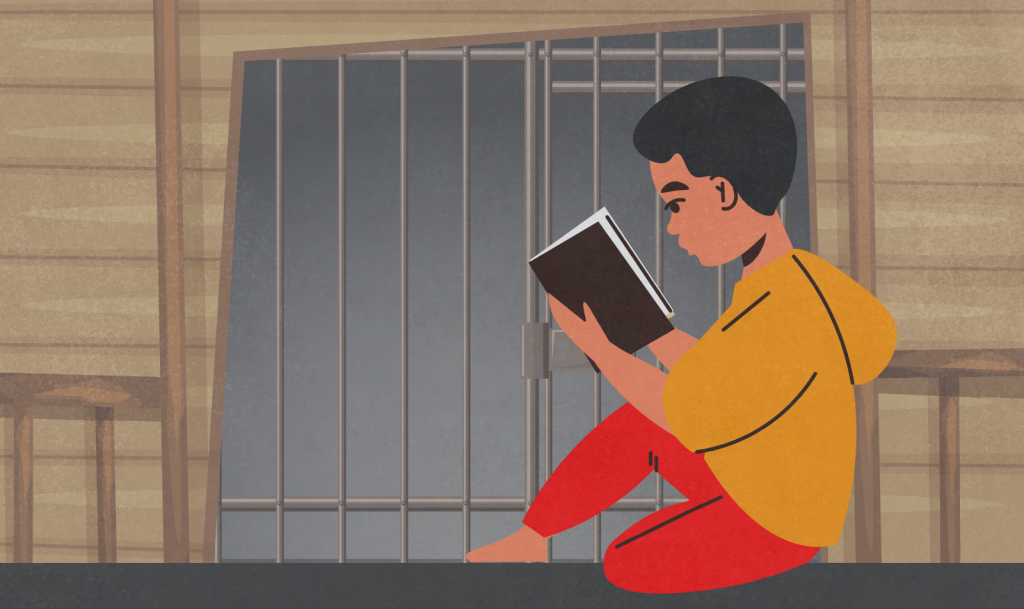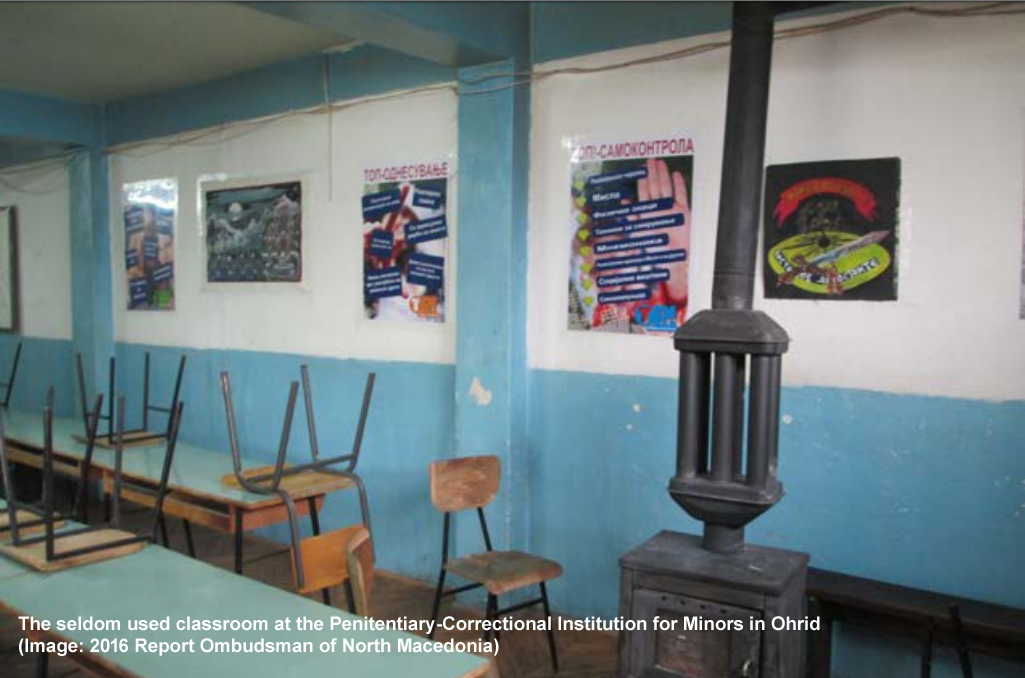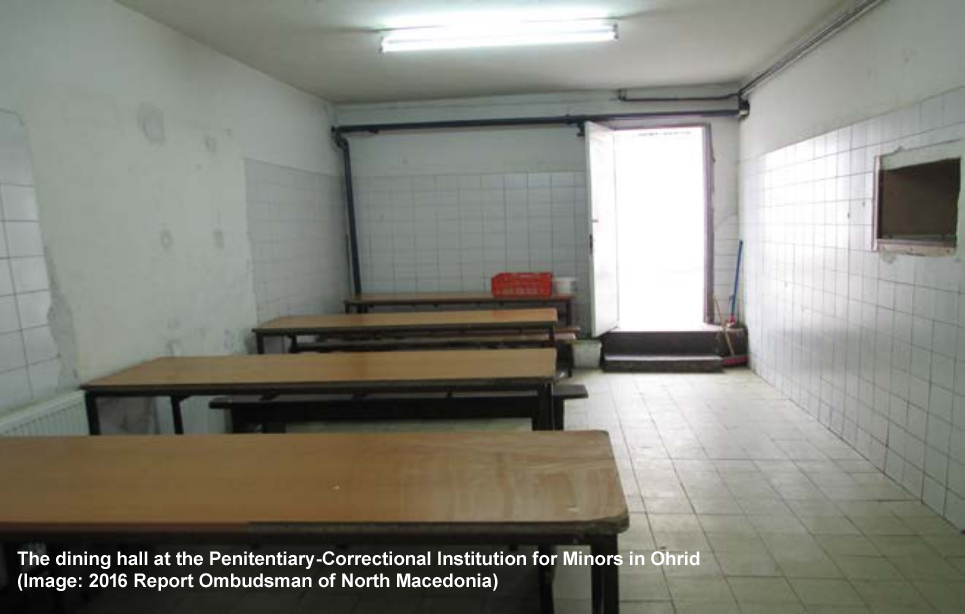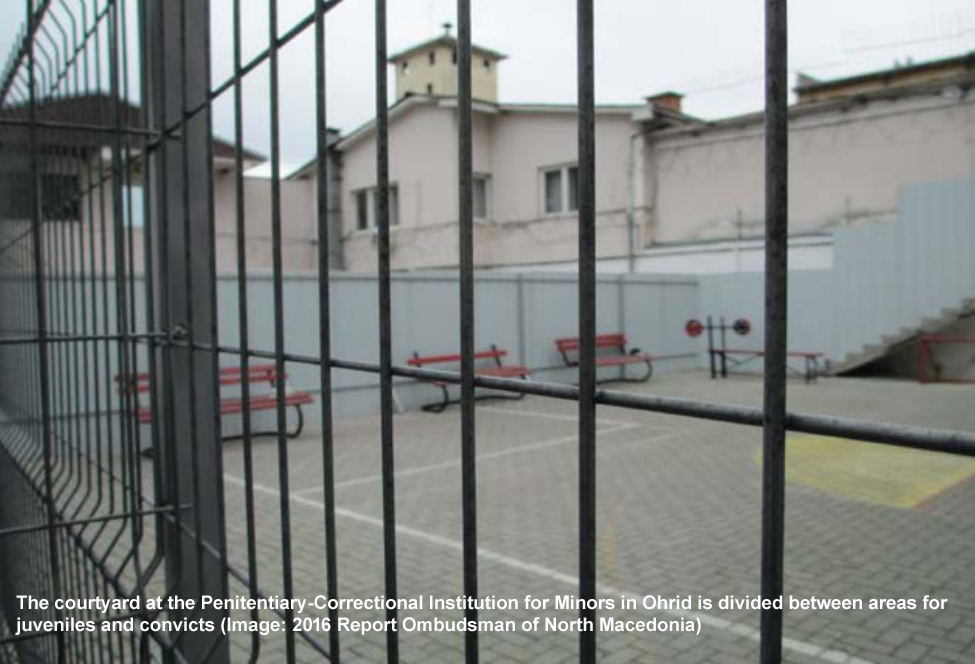Denied an education in juvenile detention, Romani children in North Macedonia now face injustice from the courts
25 October 2022

By Maria Bogdan
Receiving no education in a segregated juvenile correction centre does not count as discrimination – or so says a North Macedonian Court in its recent judgment in an ERRC case against the Penitentiary-Correctional Institution for Minors Tetovo, Macedonian Ministry for Justice, and Ministry of Education and Science. The ERRC sued the authorities for not providing education for Romani children incarcerated in a correctional centre in 2017. After exhausting domestic remedies, the ERRC seeks to bring the case to the European Court of Human Rights and is therefore urgently looking for one of the children who was detained in the juvenile correction centre that was placed in Ohrid in 2017 to take the case.
In North Macedonia, Romani children are overrepresented in correctional institutions where they are disproportionately affected by the lack of formal education. It means that these Romani children, who usually come from marginalised communities and were already facing a life of everyday racism, exclusion, and discrimination, begin their adult lives at an even greater disadvantage. Education in the country is compulsory between the ages of 6 and 19 for general secondary education, or from 6 to 17, 18, or 19 for vocational education and training depending on the selected track. Only 22% of Roma are employed in North Macedonia, compared to a general employment rate of 47%. With a criminal record and no proper education, the chances of these Romani children getting a job are very low.
In 2017, the European Roma Rights Centre decided to challenge this injustice. In October 2017, ERRC lawyers managed to gain access to the Penitentiary-Correctional Institution for Minors Tetovo, temporarily located in Ohrid and speak with the children unsupervised. There they met Ramiz*, a then 18-year-old Romani boy, who was just about to be discharged from the institution after spending three years there without receiving any formal education and who was more than ready to take a case against the authorities for this injustice. Ramiz's experience is not unique but is representative of many Roma who are convicted of crimes as minors in North Macedonia.

The authorities argued that some informal education, such as basic numeracy and language classes, was offered to the children. According to the children, nothing like that happened there and the Ombudsman’s report about two inspections of the facility at the time also supports the children’s claim. The Ombudsman found no evidence of any activity related to the education of the children, casting doubt on whether any kind of educational syllabus was ever delivered at the institution at all.
A case was lodged on 18th May 2018 at the Civil Court against the Macedonian Ministry for Justice – Directorate for Execution of Sanctions, the Ministry of Education and Science, and the Penitentiary-Correctional Institution for Minors Tetovo. The ERRC argued that Ramiz, and other Romani children like him, were disproportionately affected by the human rights violation of denying the children there an education. In other words, not only was their right to an education violated, but this constituted indirect discrimination because it affected almost entirely Romani children in the segregated correctional facility.
The Civil Court saw things differently and ruled against the ERRC on 16th September 2019. They judged that Ramiz and the other Romani children were not discriminated against in their lack of access to education, because none of the children in the institution (no matter their ethnicity) had access to formal education. With this judgment, the Civil Court demonstrated its unfamiliarity with the concept of indirect discrimination. The ERRC appealed the case before the Court of Appeal, but it confirmed this ruling on 11th May 2020.
When the North Macedonian Parliament adopted a new Anti-Discrimination law in the autumn of 2020 that recognises the possibility of lodging a collective complaint, the ERRC saw it as an opportunity to file a new complaint before the Civil Court for the same issue. This time the case was on behalf of all the children affected in the institution with particular attention to the Romani children. The collective complaint (actio popularis) was regarding the lack of equal access to education for children placed in the correctional centre (direct discrimination by status) and Romani children (indirect discrimination on basis of ethnicity).

The ERRC partially won the case on the first instance before the Basic Court in March 2021 but lost it on appeal at the beginning of October this year. The judgment is very disappointing and makes the same mistake as the previous courts in misunderstanding discrimination (especially indirect discrimination) in its reasoning.
More concretely, according to ERRC’s Legal Director, Senada Sali: “The judges clearly lacked an understanding of how direct and indirect discrimination work in practice. Just because there are laws guaranteeing the right to education in correctional facilities, it does not necessarily mean that those laws are adequately implemented by authorities in practice.” In addition, she points out that from the judgment it is obvious that the judges did not seriously consider the findings of the two Ombudsman reports which showed that no formal education (or educational certificates) was provided to minors in the facility in the period specified in the complaint. The reports also provided observations that the majority of the minors in the facility were of Romani ethnicity during each visit of the Ombudsman, corroborating the evidence from the ERRC’s visit in 2017.

The ERRC is now taking the case to the Supreme Court while at the same time preparing a complaint to the European Court of Human Rights (ECtHR). In order to bring this to the European Court the ERRC must find an applicant; one of the children who was in the juvenile penitentiary in Ohrid around 2017, and is willing to take the case against the authorities. These Romani children have become adults in the meantime, and more Romani children have taken their place in correctional centres across the country. In order to make sure these children have any chance of a future, this case needs an applicant to go to Strasbourg.
For more background on the case please read Jonathan Lee’s article from 20, May 2020, No education, no future for Romani youth offenders in North Macedonia.
*His name was changed to Ramiz in this article to protect his identity.




